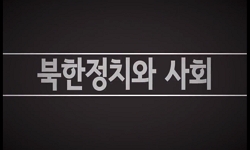1950년대부터 1989년 사이의 독일민주공화국과 북한의 양자관계는 모스크바와 베이징에 의해 영향을 받아왔다. 넓은 의미로 보면, 양 공산국가들은 1945년 이후 양분되어 온 독일과 한반도의 ...
http://chineseinput.net/에서 pinyin(병음)방식으로 중국어를 변환할 수 있습니다.
변환된 중국어를 복사하여 사용하시면 됩니다.
- 中文 을 입력하시려면 zhongwen을 입력하시고 space를누르시면됩니다.
- 北京 을 입력하시려면 beijing을 입력하시고 space를 누르시면 됩니다.
https://www.riss.kr/link?id=A82405380
-
저자
Bernd Schaefer (The German Historical Institute (GHI), Washington D.C.)
- 발행기관
- 학술지명
- 권호사항
-
발행연도
2004
-
작성언어
-
- 주제어
-
KDC
900
-
등재정보
KCI등재
-
자료형태
학술저널
-
수록면
1-30(30쪽)
- 제공처
- 소장기관
-
0
상세조회 -
0
다운로드
부가정보
국문 초록 (Abstract)
1950년대부터 1989년 사이의 독일민주공화국과 북한의 양자관계는 모스크바와 베이징에 의해 영향을 받아왔다. 넓은 의미로 보면, 양 공산국가들은 1945년 이후 양분되어 온 독일과 한반도의 긴장을 반감시키며 견고한 상호관계를 유지해 왔다. 1986년까지 독일민주공화국은 모스크바의 영향을 받는 사이 북한은 소련으로부터의 군사적 원조 없이 주로 중국에 의존하고 있었다. 한국전 이후 독일민주공화국은 함흥시 재건을 위한 경제적 원조를 지원하였다. 이러한 관계가 정치적으로 발전되면서 1977년, 1984년, 1986년에는 호네커와 김일성 사이의 개별회담이 성사되기도 하였다. 평양에서의 이러한 만남이 이루어진 이후에 소련 고르바초프의 개혁으로 말미암아 1989년 동독이 멸망하기까지 양국 간에는 유례 없는 군사적 동맹관계가 형성된다.
다국어 초록 (Multilingual Abstract)
Bilateral relations between the German Democratic Republic (GDR) and the Democratic People’s Republic of Korea (DPRK) between the 1950s and 1989 were contingent on respective relationships of East Berlin and Pyongyang with Moscow and Beijing. To a l...
Bilateral relations between the German Democratic Republic (GDR) and the Democratic People’s Republic of Korea (DPRK) between the 1950s and 1989 were contingent on respective relationships of East Berlin and Pyongyang with Moscow and Beijing. To a large degree, both communist halves of the post-1945 divided states of Germany and Korea weathered those overriding tensions and developed a mutually solid working relationship. Until 1986 the GDR followed Moscow’s course whereas the DPRK mostly tilted towards China without forsaking essential Soviet support in military terms. After the end of the Korean War, the GDR provided substantial economic aid and organized the reconstruction of the city of Hamhung. Gradually closer in a political sense became relations with personal meetings of leaders Erich Honecker and Kim Il Sung in 1977, 1984, and 1986. After this last encounter in Pyongyang, mutual distrust of Gorbachev’s reforms in the Soviet Union led to unprecedented military and intelligence cooperation between the DPRK and the GDR all the way through 1989 until the fall of the East German communists from power.
목차 (Table of Contents)
- Ⅰ. Setting the Stage, 1949-1955
- Ⅱ. First Observations and Patterns, 1956-1961
- Ⅲ. Taking Sides in the Sino-Soviet Conflict, 1962-1965
- Ⅳ. Equidistant and Back in Business, 1966-1977
- Ⅴ. Byzantinism and the Embrace of the Leaders, 1978-1989
- Ⅰ. Setting the Stage, 1949-1955
- Ⅱ. First Observations and Patterns, 1956-1961
- Ⅲ. Taking Sides in the Sino-Soviet Conflict, 1962-1965
- Ⅳ. Equidistant and Back in Business, 1966-1977
- Ⅴ. Byzantinism and the Embrace of the Leaders, 1978-1989
동일학술지(권/호) 다른 논문
-
- 한국외국어대학교 역사문화연구소
- 김후련(金厚蓮)
- 2004
- KCI등재
-
8.15후 中國 延邊地方의 조선인 무장부대의 창설과 초기 활동
- 한국외국어대학교 역사문화연구소
- 廉仁鎬(Yeom, In-ho)
- 2004
- KCI등재
-
- 한국외국어대학교 역사문화연구소
- 孫承會
- 2004
- KCI등재
-
- 한국외국어대학교 역사문화연구소
- 김성호(金成鎬)
- 2004
- KCI등재





 스콜라
스콜라







